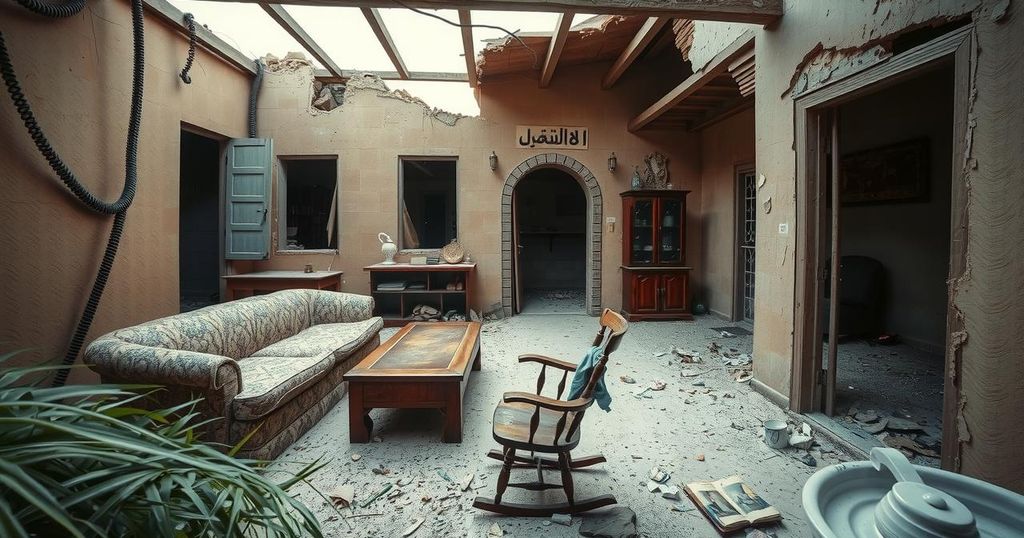Ransacked and Looted: A Personal Account of War’s Impact in Khartoum

Yousra Elbagir reflects on her family’s home in Khartoum, devastated by the 2023 conflict. The looting by RSF troops amidst a power struggle left the city in ruins, with thousands displaced and many lives lost. Amid destruction, Elbagir finds remnants of her family’s life, illustrating the persistence of hope and community spirit despite the overwhelming loss.
In a poignant reflection of the devastation in Sudan’s capital, Yousra Elbagir, Sky’s Africa correspondent, reports on the remnants of her family home in Khartoum after it was engulfed by the violent clashes that erupted in April 2023. As the paramilitary Rapid Support Forces (RSF) seized control during intense fighting with the Sudanese Armed Forces (SAF), the once-bustling city was left in tatters, with millions seeking refuge elsewhere.
The conflict has claimed the lives of at least 61,000 individuals in Khartoum state alone, with thousands more injured or reported missing. After two years under RSF occupation, the streets were left desolate, marked by charred buildings and businesses stripped bare. The once-proud skyline of Khartoum, dominated by modern skyscrapers, now stands as a haunting reminder of the violence.
Elbagir’s family home, now a mere shell of its former self, reflects the personal toll of this conflict. The landmarks she used to navigate her childhood neighborhood have vanished. What was once a thriving environment has been reduced to overgrown gardens overtaken by weeds and ravaged trees, reminiscent of the lives once lived there.
As she approaches her family house, gone are the lively gatherings of neighbors. Her parents’ cherished garden, once vibrant with mango, lemon, and jasmine, has succumbed to neglect. Evidence of looting is omnipresent; her family’s car was stolen shortly after evacuation, leaving a distinct void.
The house’s exterior appears unscathed from a distance, but close inspection reveals cracks—a chilling reminder of the bombardments that forced her family to flee. Inside, the destruction is pervasive. Furniture and appliances have been looted, curtains and carpets stripped away, leaving only traces of what once furnished their life in Sudan.
Yet amid the wreckage, glimmers of hope emerge. Elbagir discovers remnants of cherished memories—a family photo album, a rocking chair, her university certificate, and personal belongings like her birthday painting—symbols of enduring strength even after the recent chaos. Despite the material loss, these items evoke the warmth, hospitality, and community spirit that define a Sudanese home.
This narrative of loss is also a testament to resilience. Although their physical spaces have been violated, the essence of familial bonds and shared experiences continues to thrive. Elbagir highlights that what remains in their hearts serves as a promise of perseverance, reminding us that the spirit of community and connection can never be taken away, regardless of the destruction outside.
In summary, Yousra Elbagir underscores the deep personal and communal impact of the conflict in Sudan. As she recounts her experience of returning to her family home in Khartoum, she illustrates the stark contrast between her cherished memories and the destruction wrought by the war. While the physical evidence of loss is overwhelming, the enduring spirit of community and hope remains, symbolizing the resilience of the Sudanese people amidst adversity.
Original Source: news.sky.com







